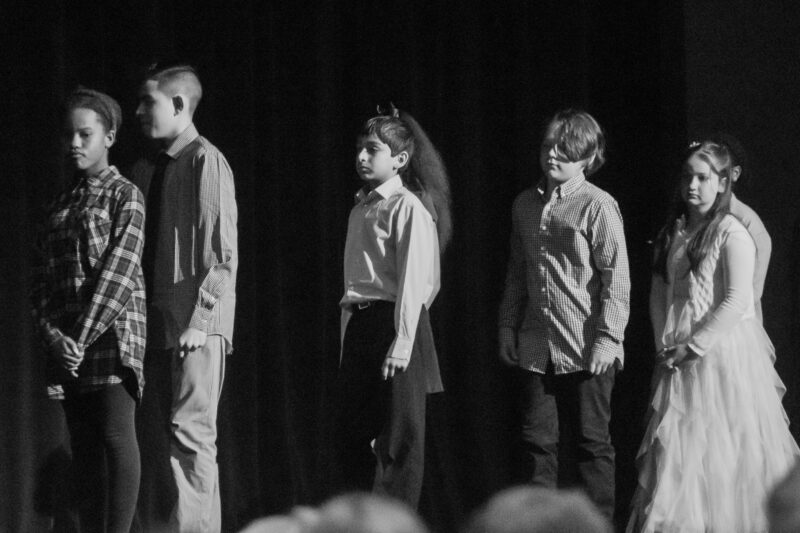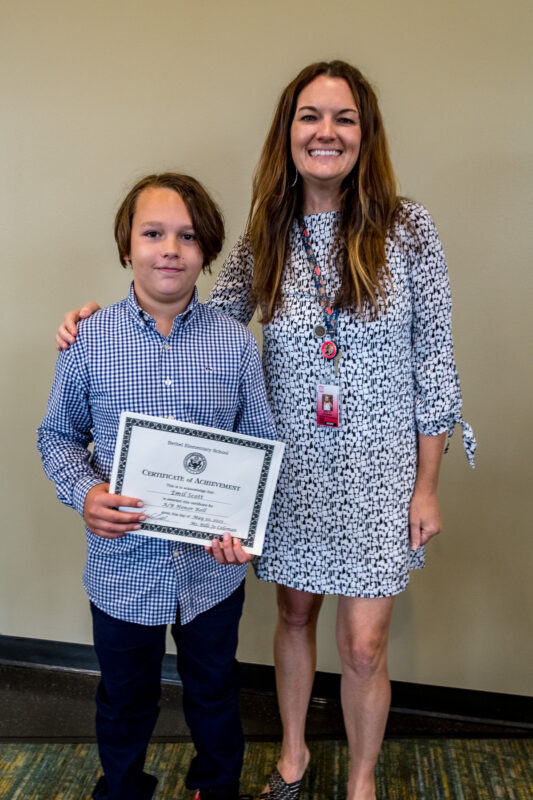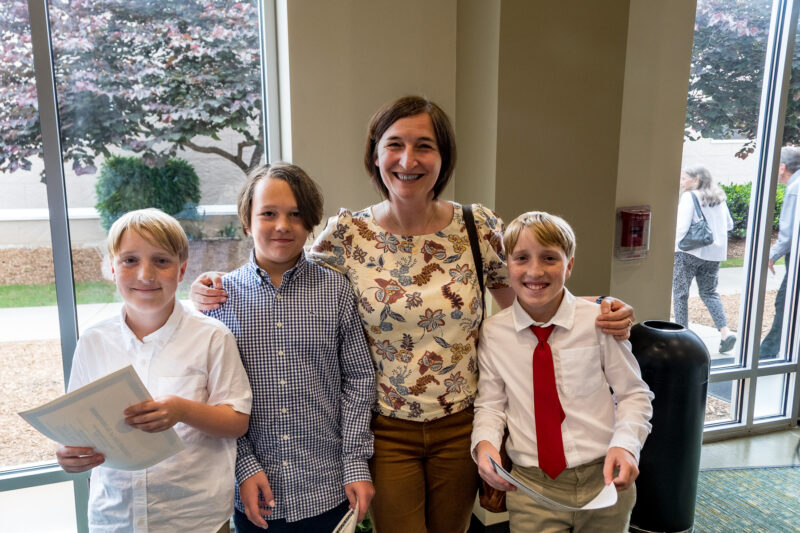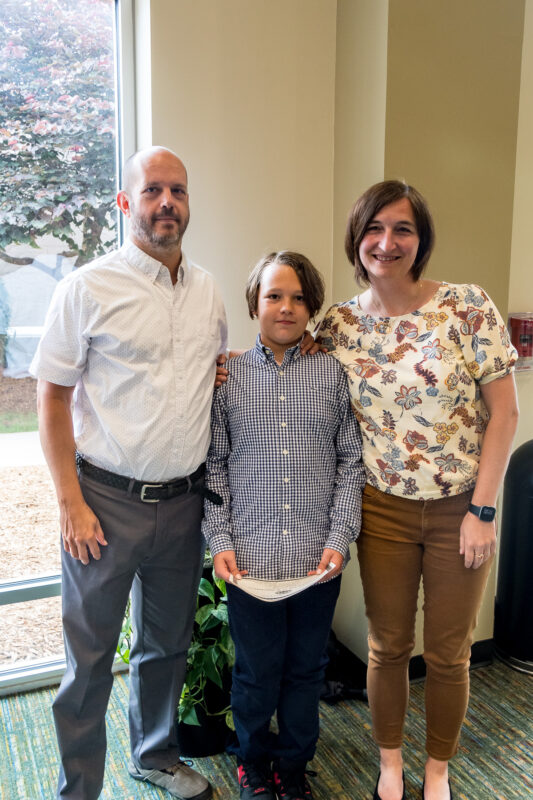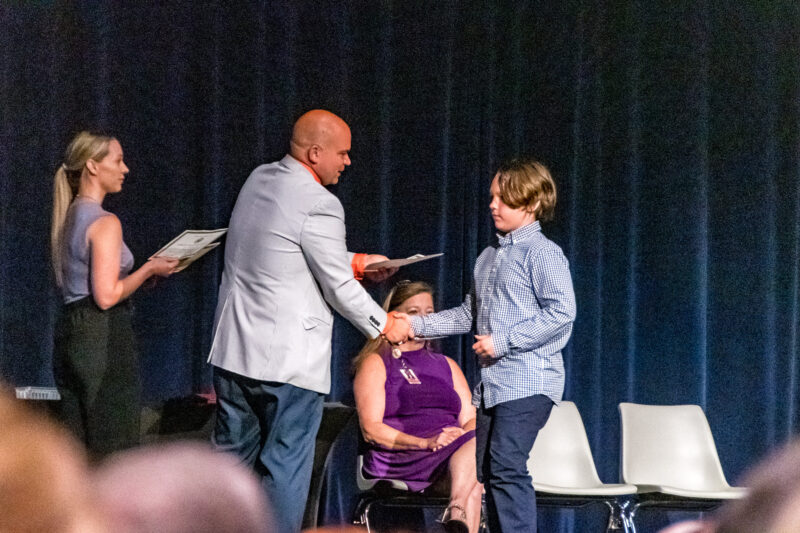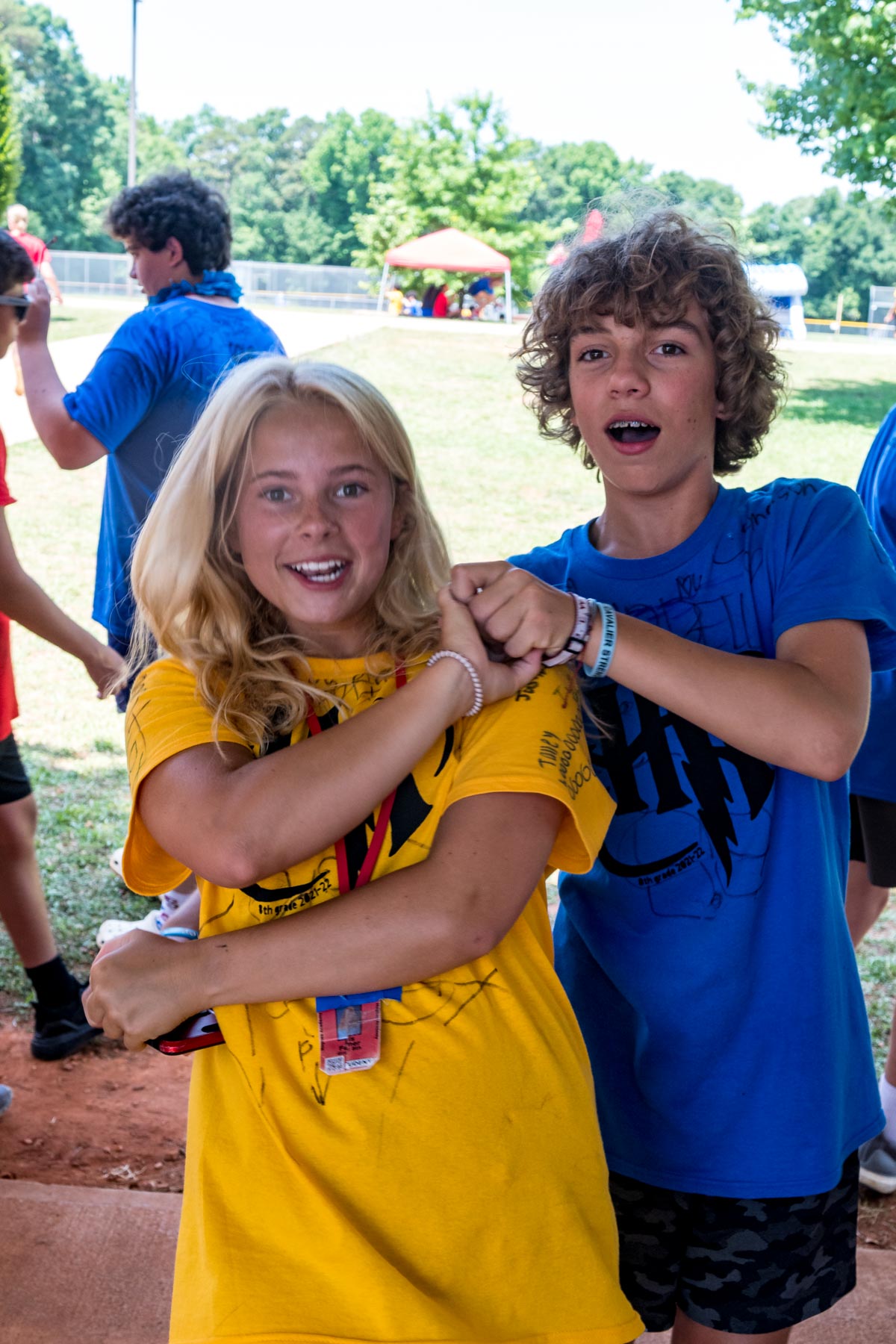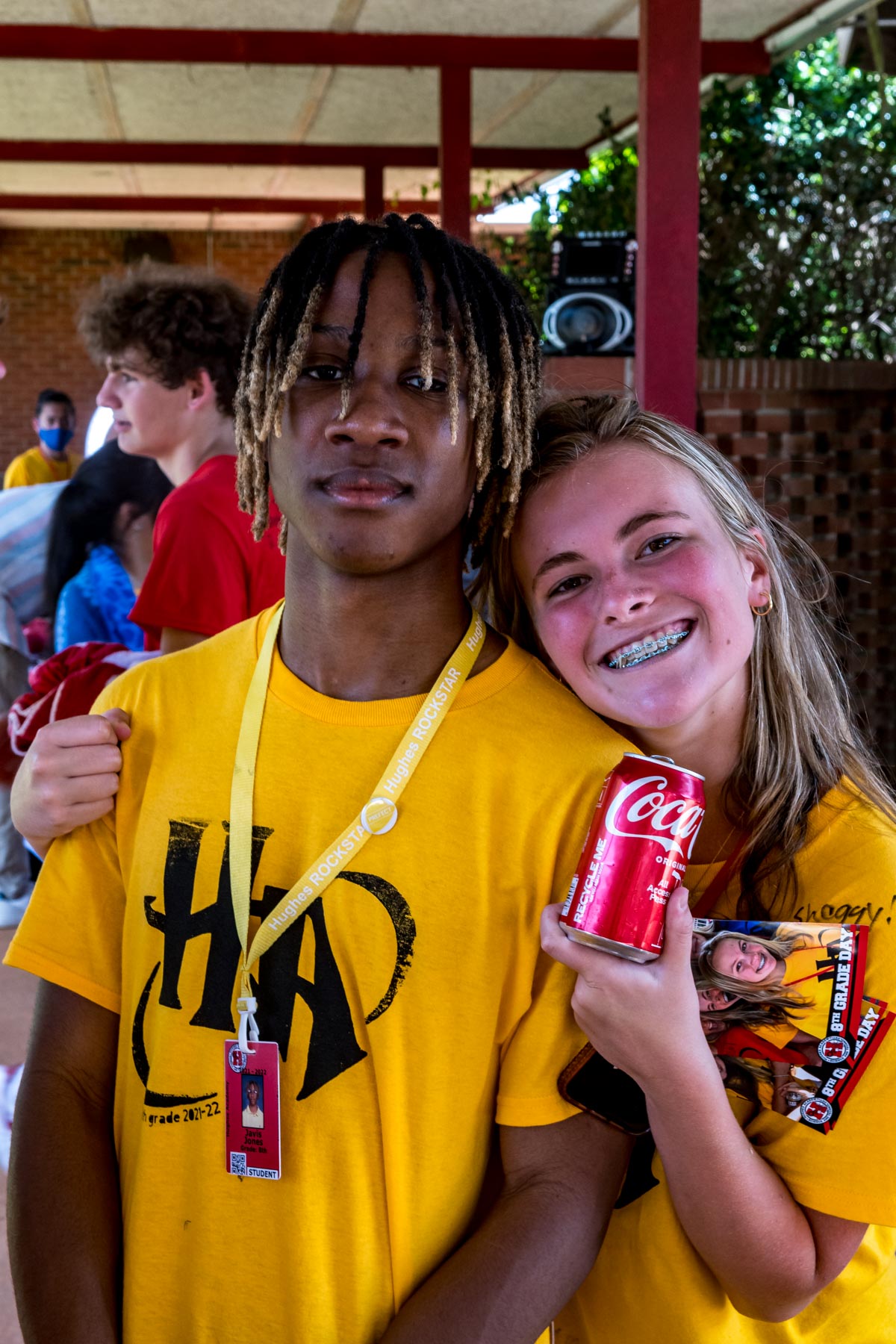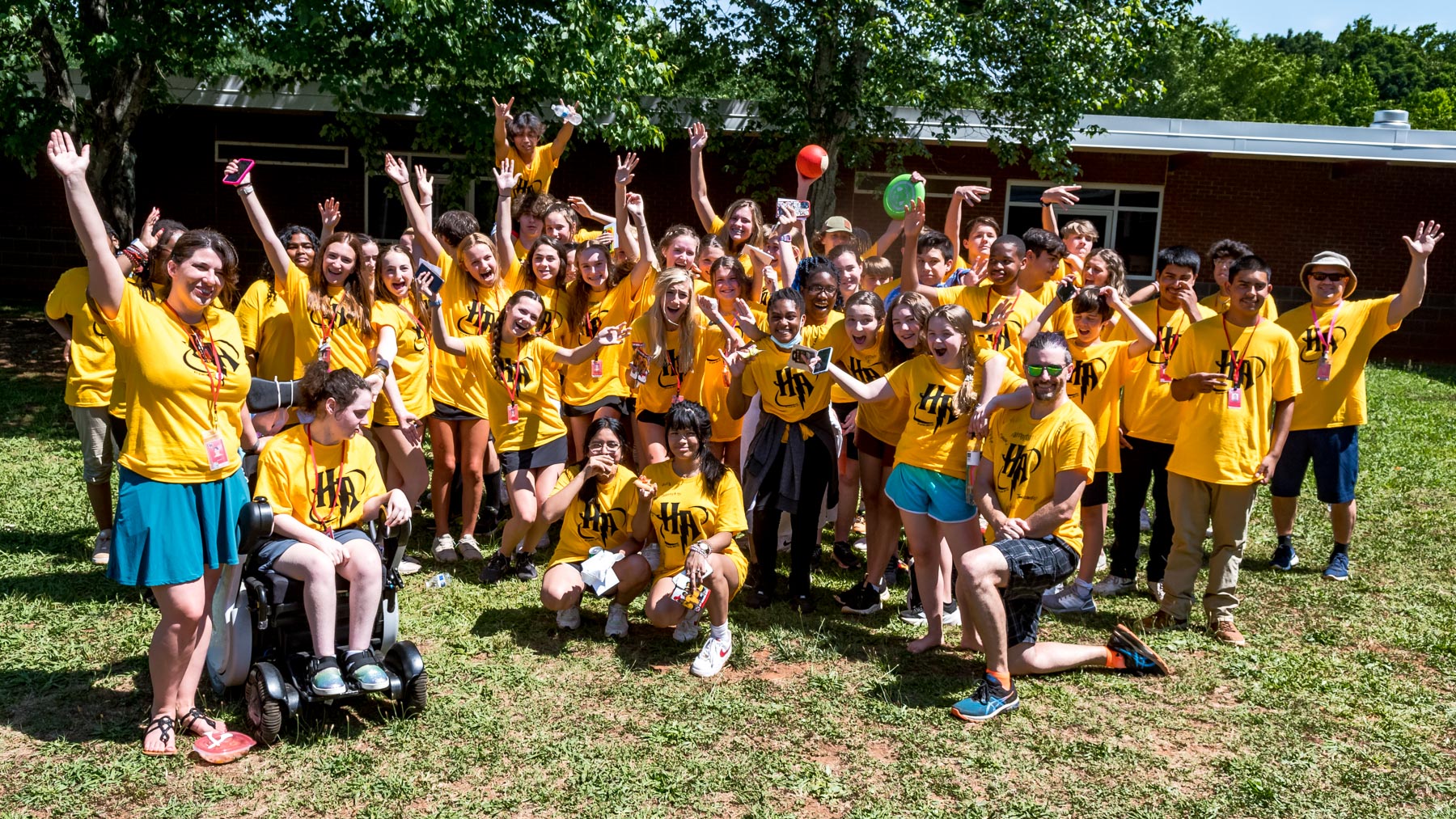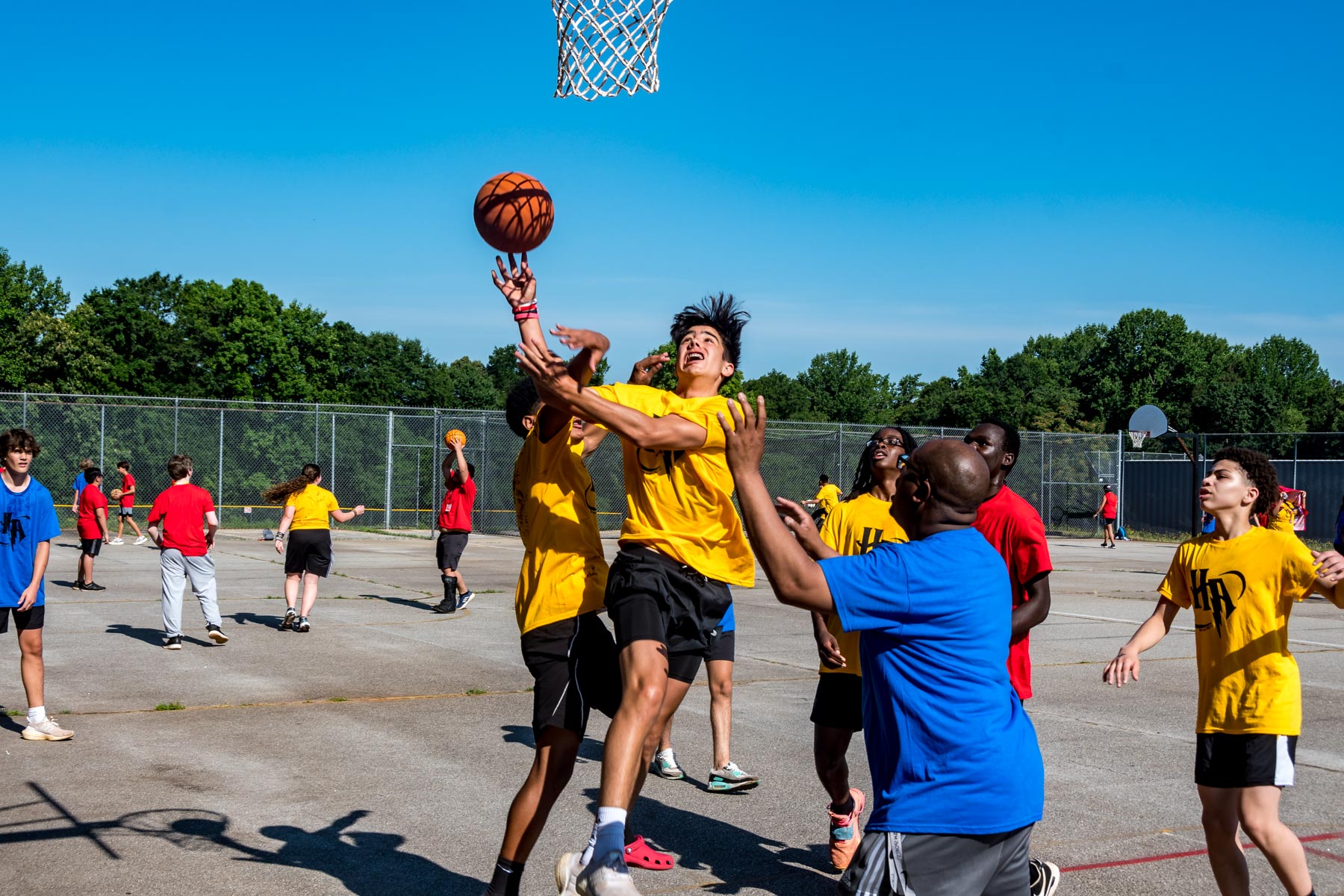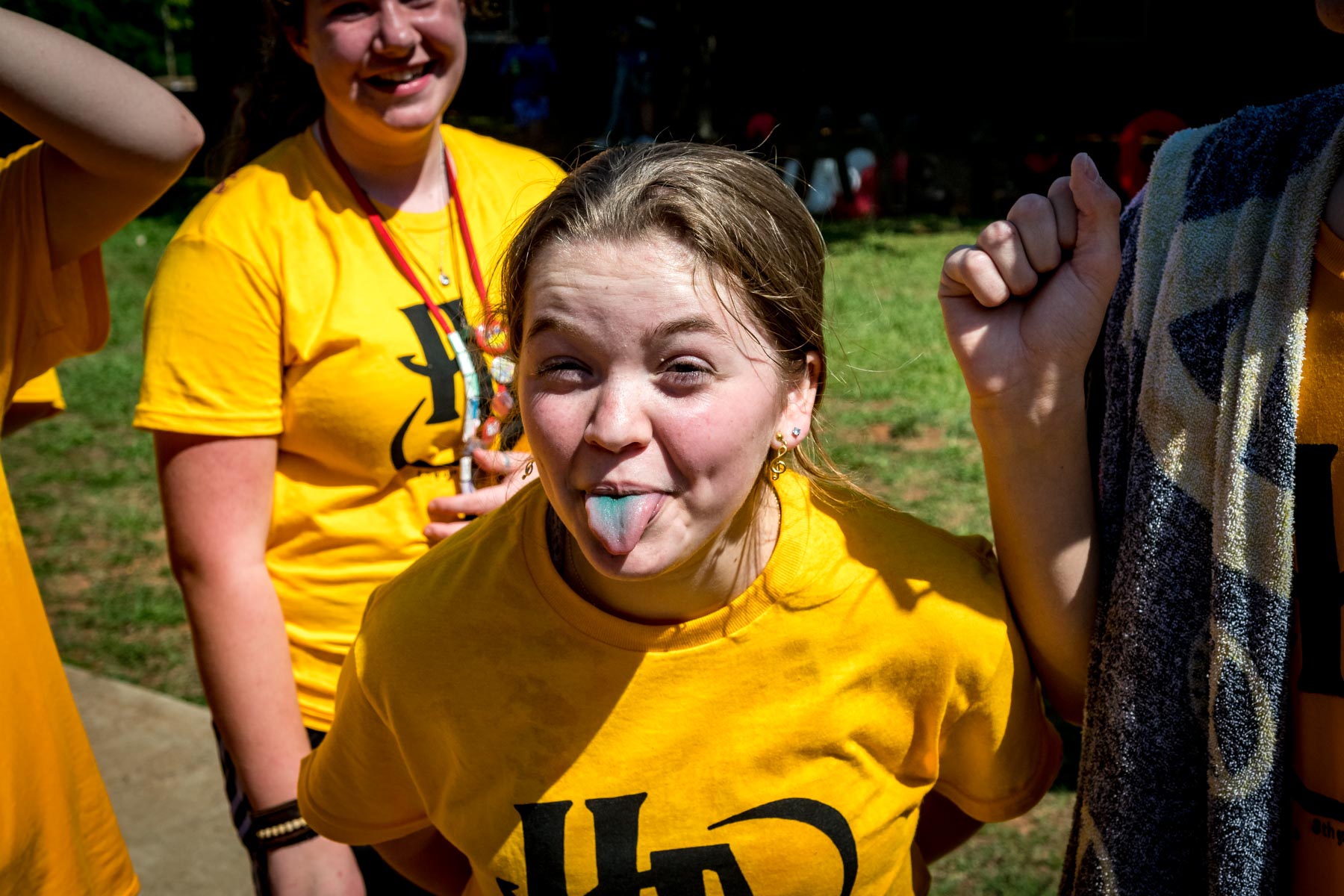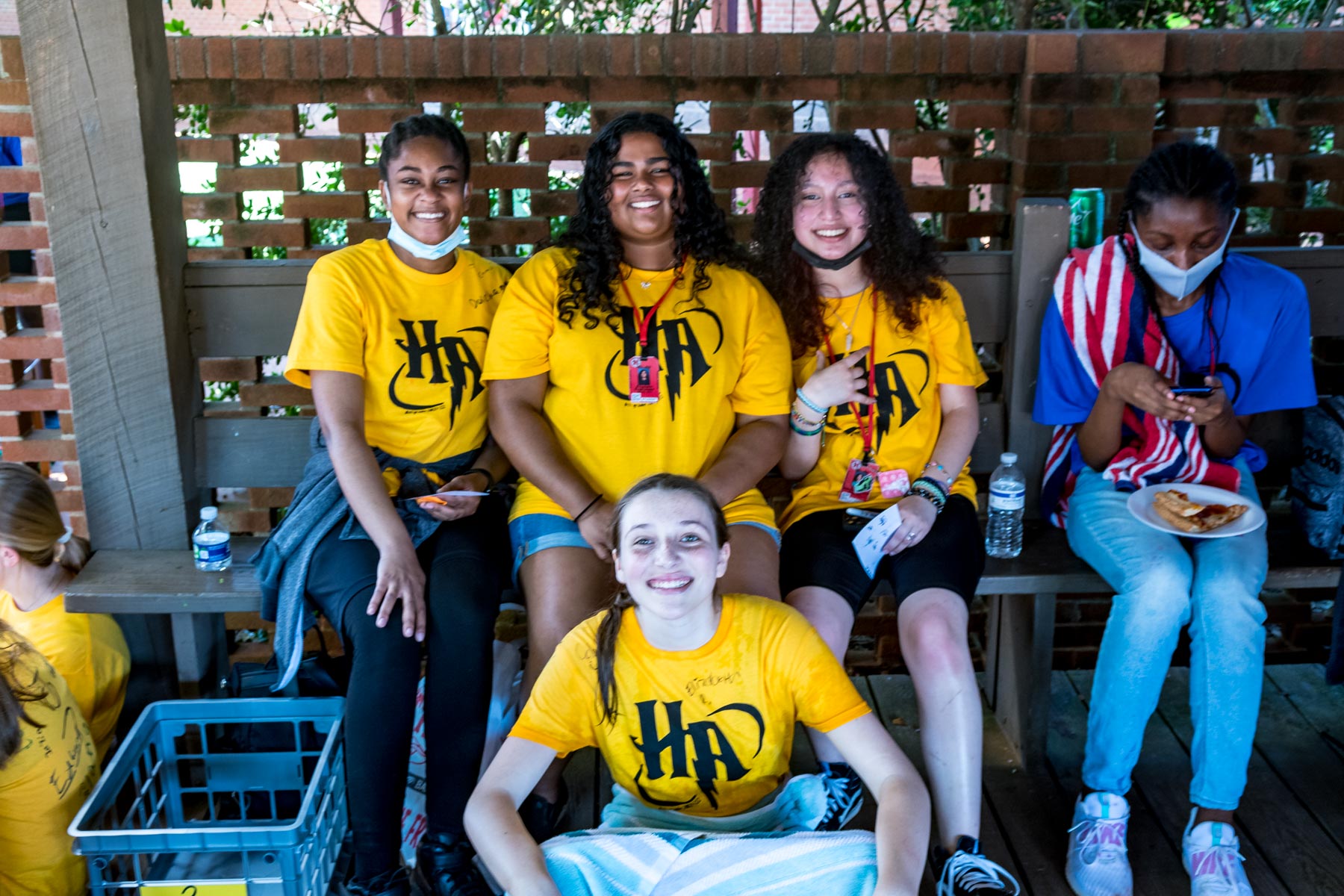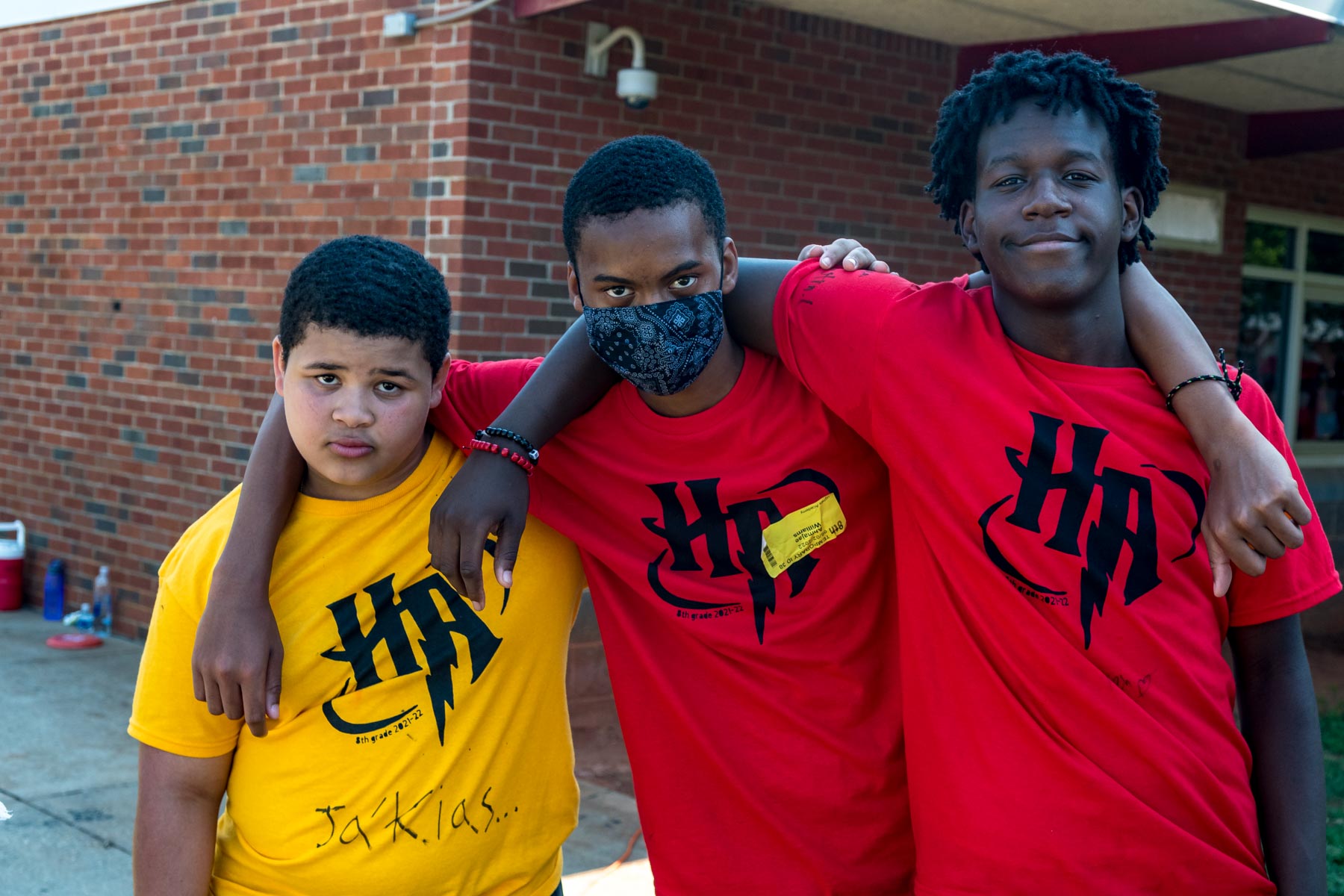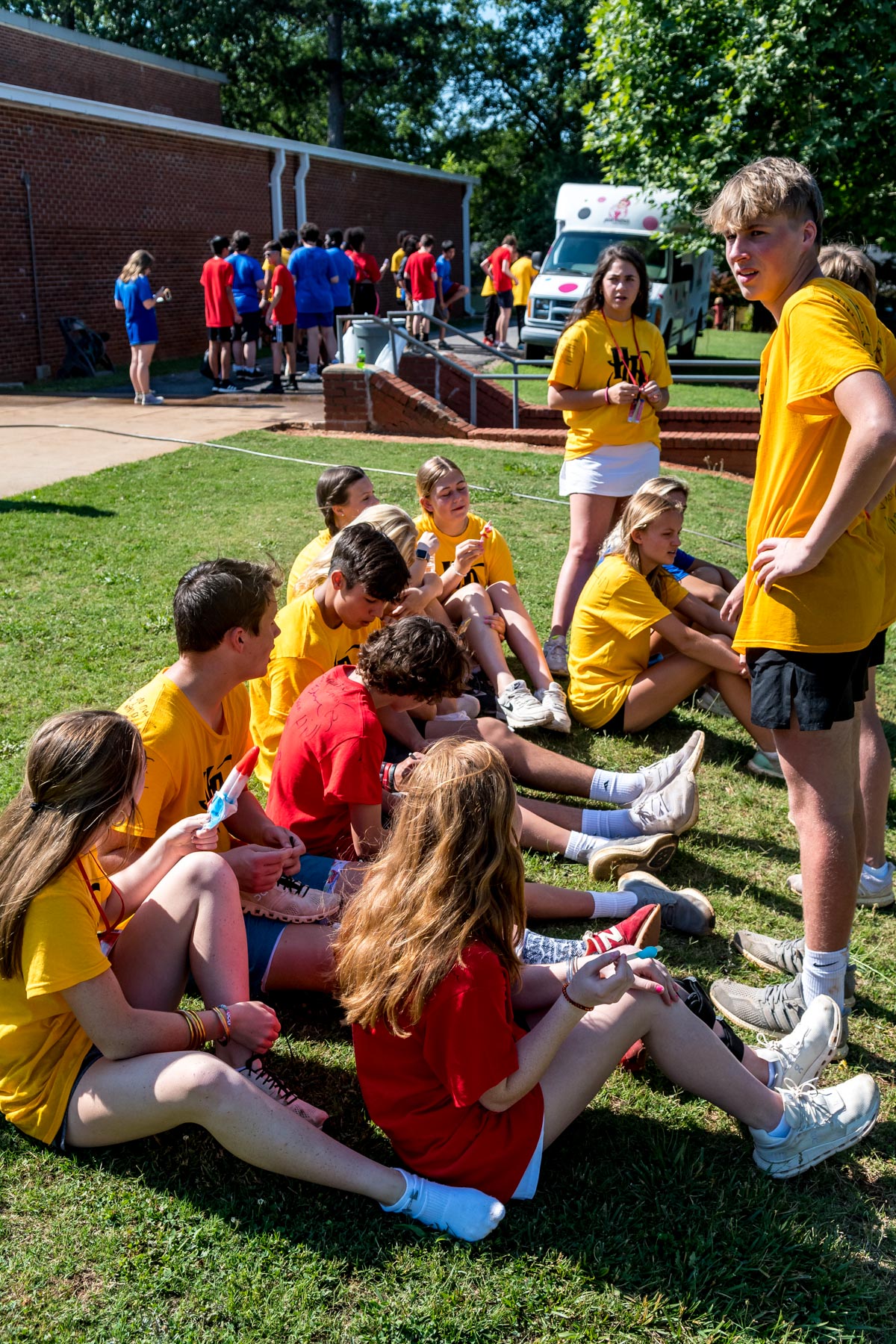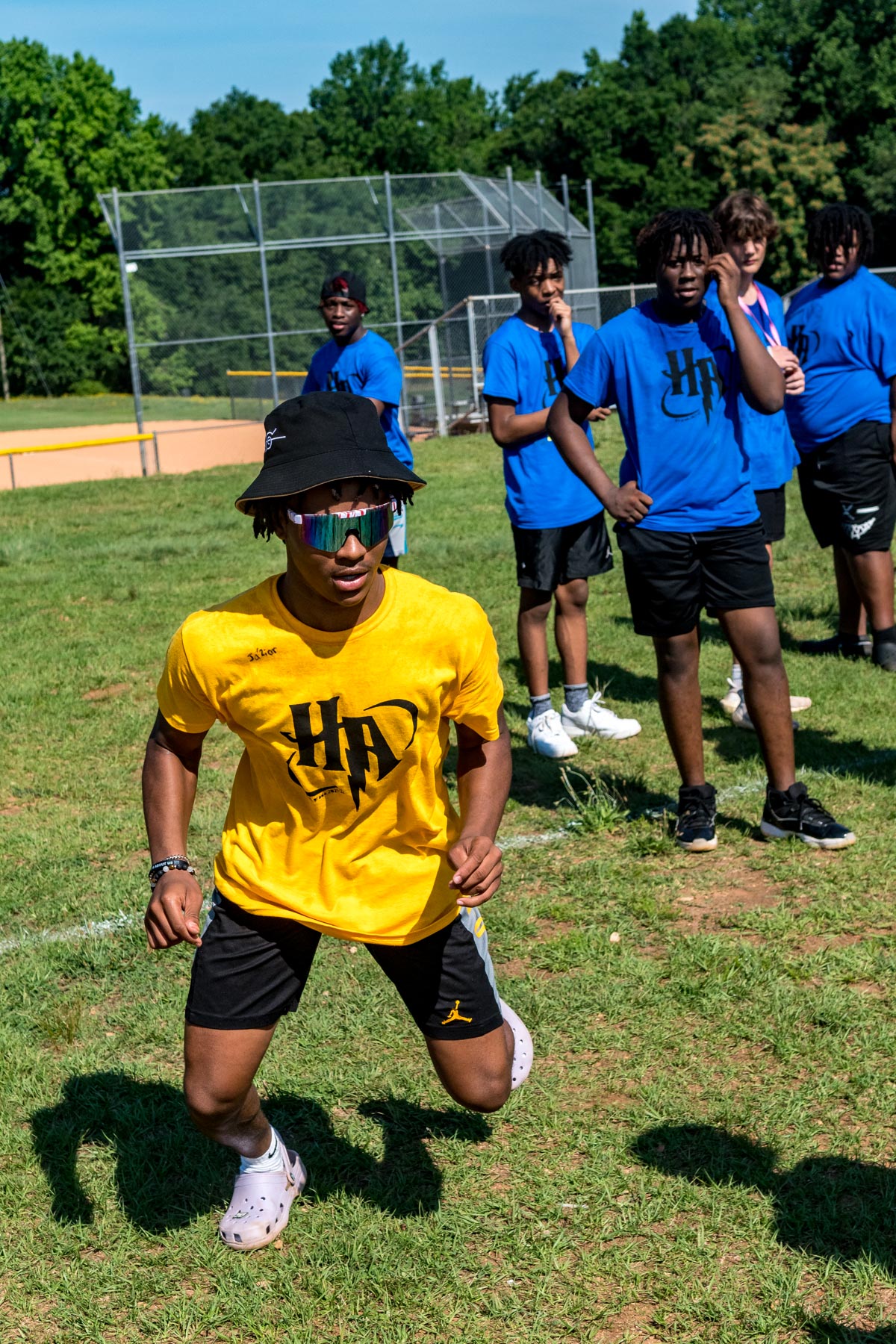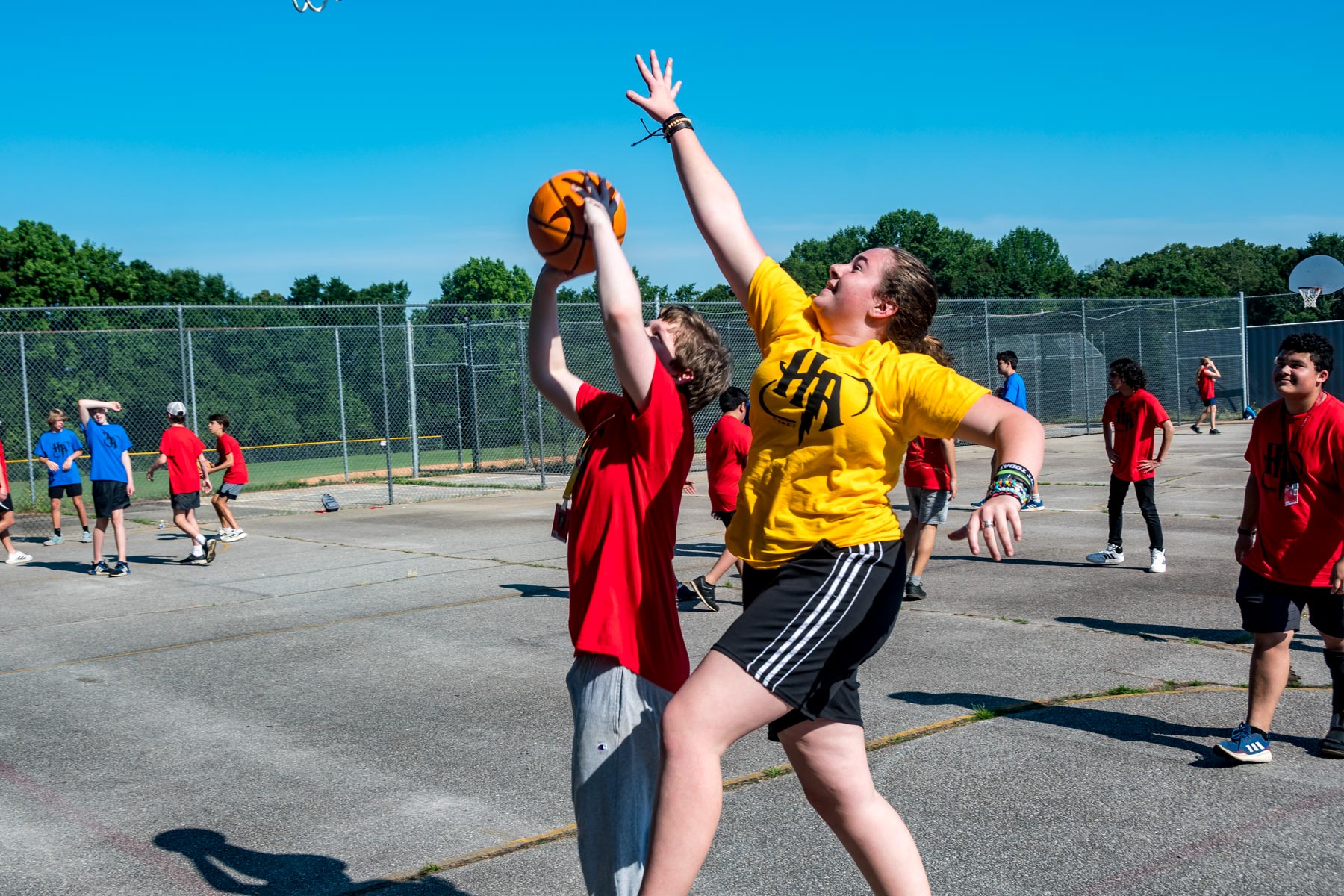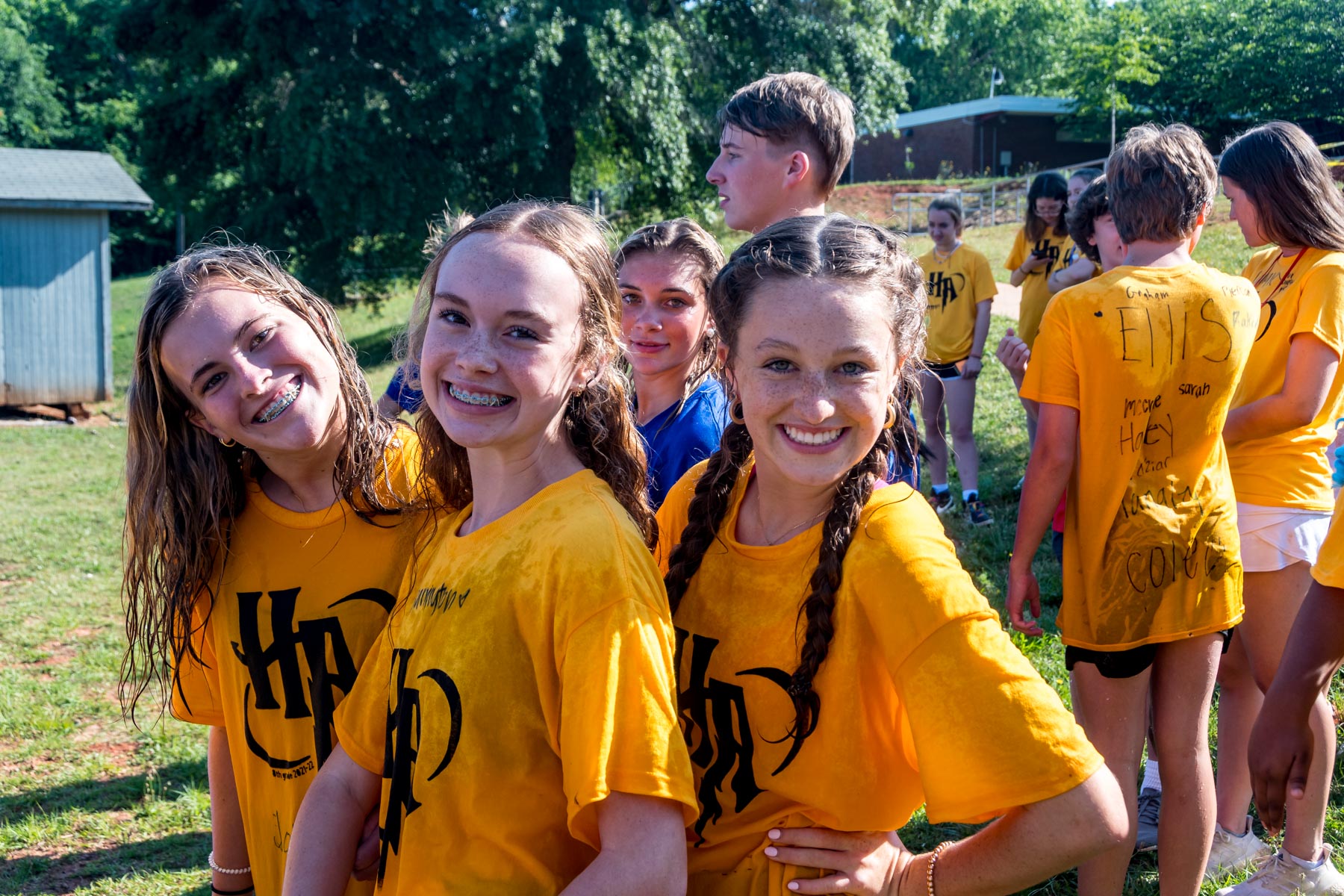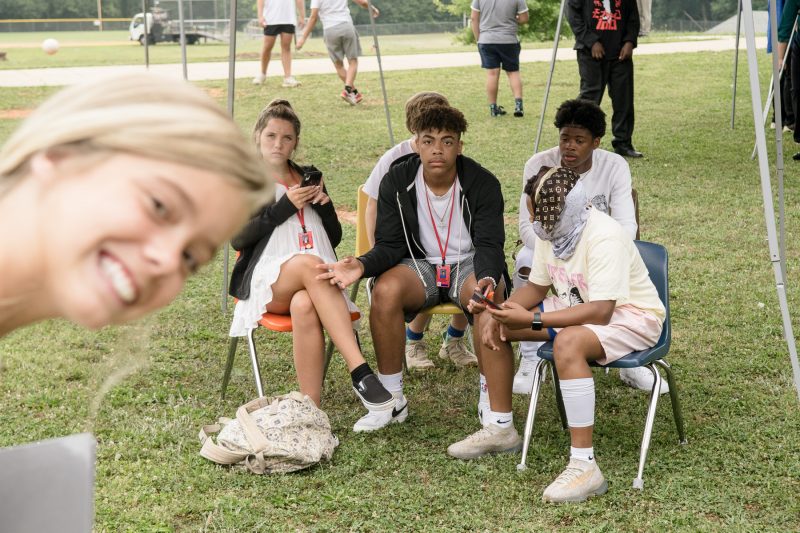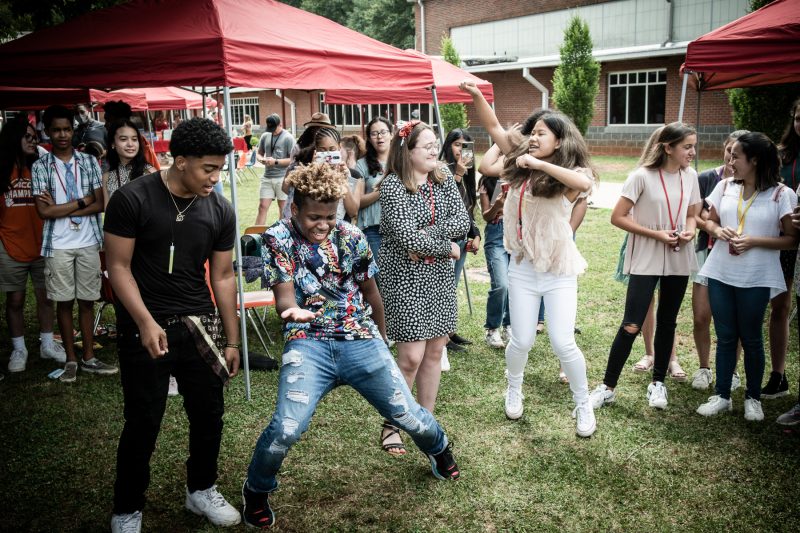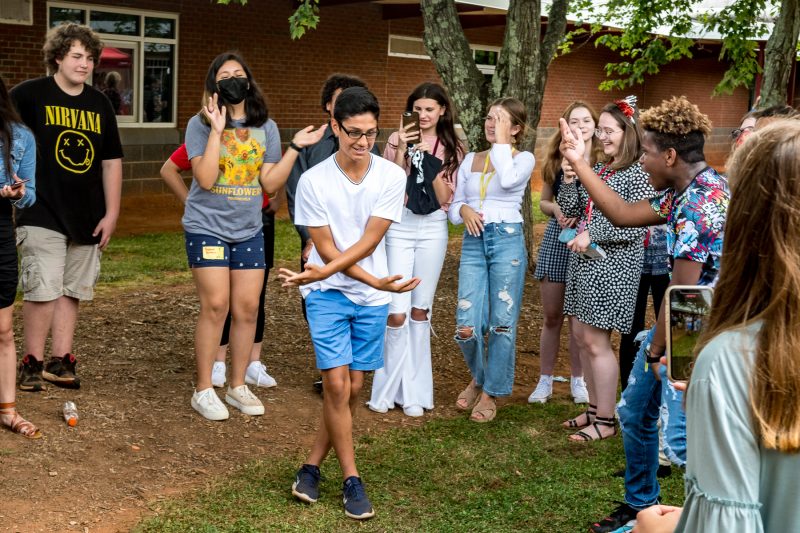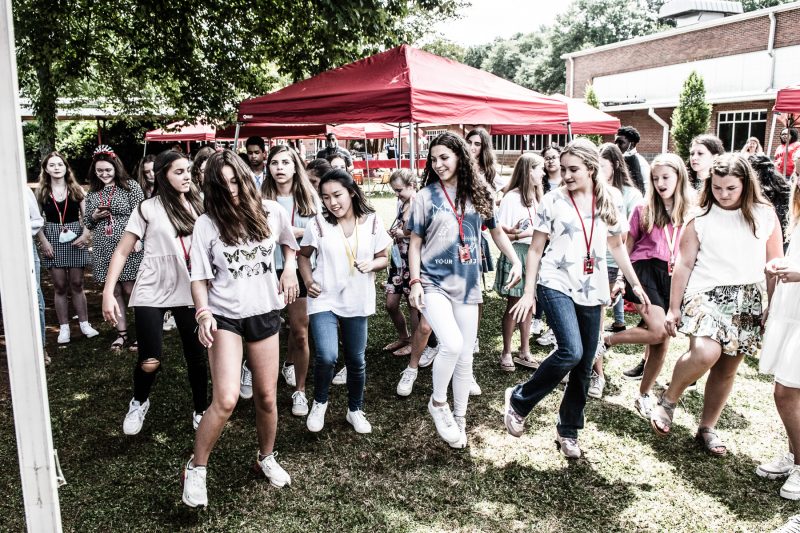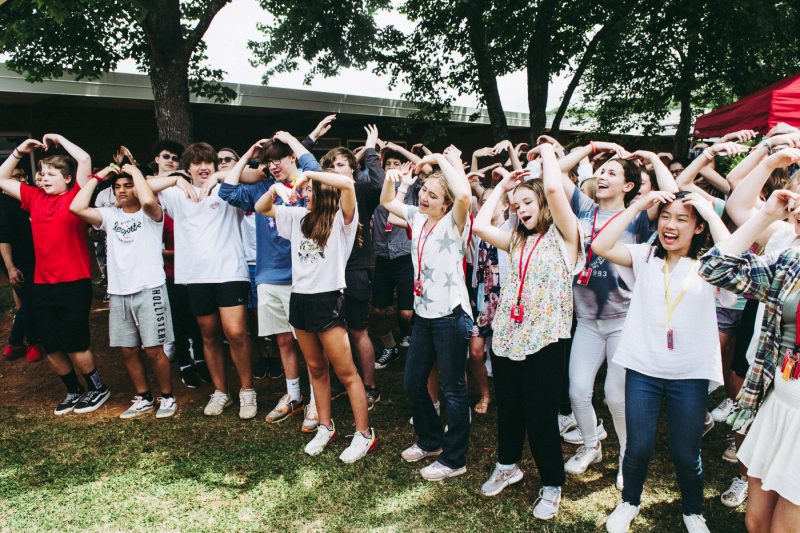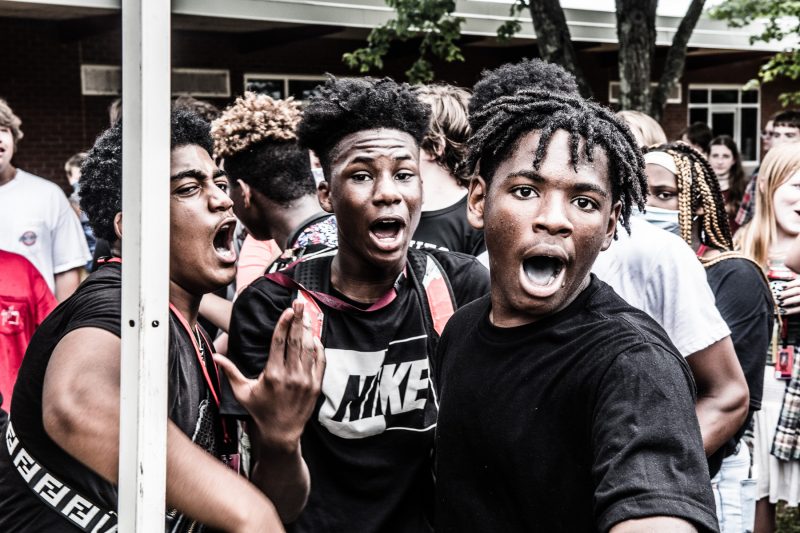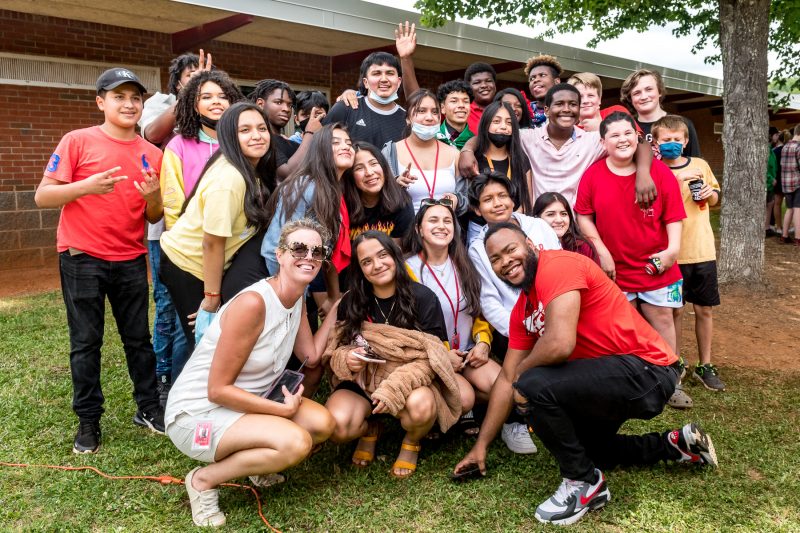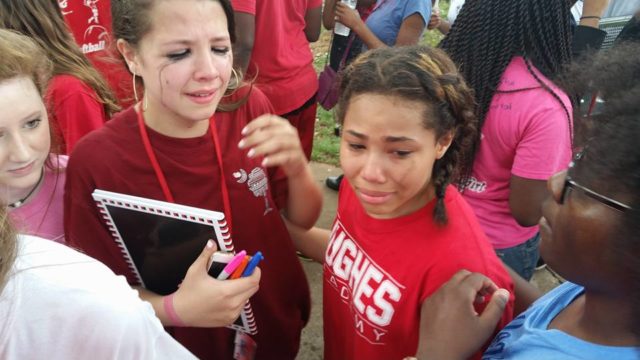Presentations
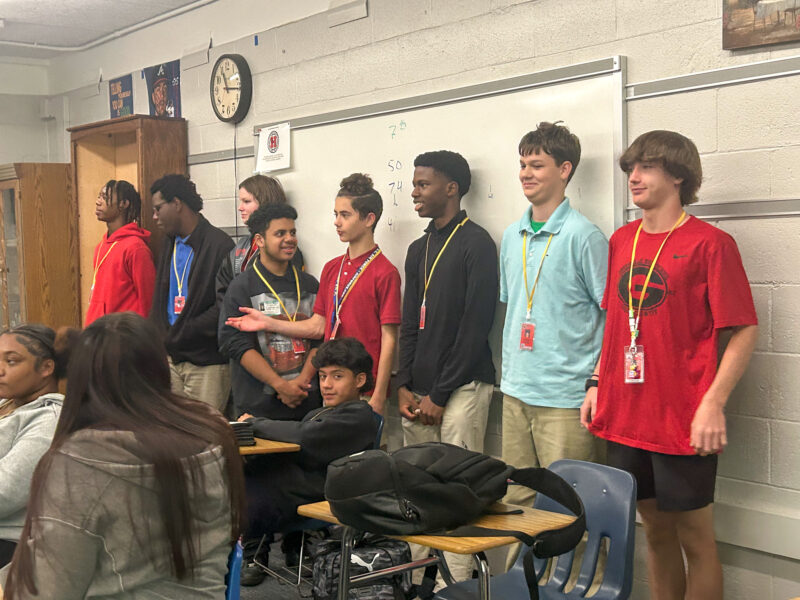
English I students had the final day of Lord of the Flies presentations today. The final group looked at mob psychology and how it played a part in the novel:
A mob mentality is regularly made when people are part of a group, and seem to lose their self-awareness, or experience deindividuation. This means they are less likely to follow normal restraints and inhibitions, or lose their individual identity. Groups can get carried away, which could lead to behaviors that a person might not indulge in, by themselves. This can also mean that certain groups could make behaviors that were not acceptable, and turn them to a normal activity. In a sense, it is related to peer pressure, but is only effected in a situation involving a large group, or mob, that is making the influence. This is also referred to as “Herd” or “Hive” behavior. (From student presentation)
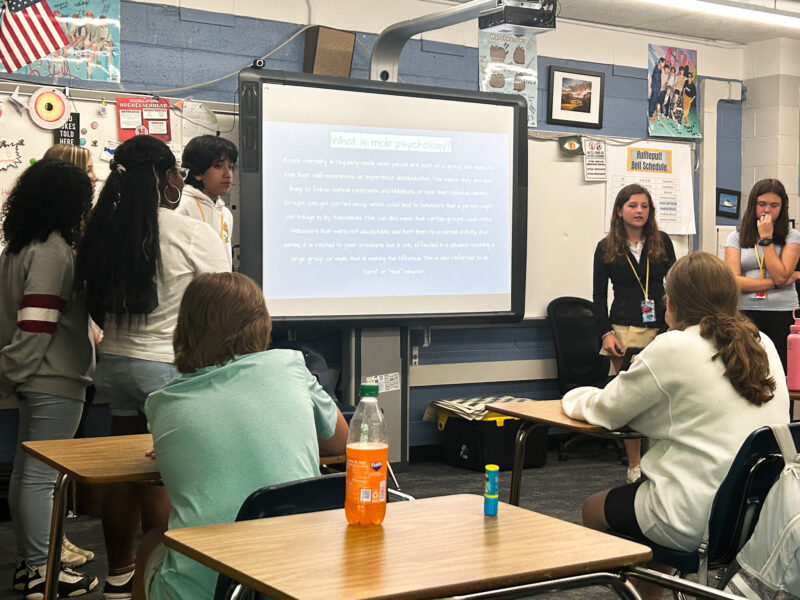
Lord of the Flies certainly made this obvious.
End of the 2021/22 School Year — Countdown Begins

Today was the final day of school for me. The kids didn’t have school, but teachers have to go in for at least one more day to get things squared away for the summer: materials returned, documents completed, papers signed, report cards mailed. During my first year at Hughes, I was overwhelmed with the amount of stuff we had to do. Since then, teachers’ “To Do” list has been drastically simplified. One whole task, which often took hours, has been assigned to others. I use the passive voice there because, quite honestly, I don’t know who made that change, but I am grateful nonetheless.
Getting this last day out of the way is such a relief because I reach a point where I can finally stop thinking about school for a while — I’m not even planning on doing any prep work this summer. For one thing, I have too much to do this summer:
- Trim the Leyland cypresses (a two-day job in and of itself)
- Clean the outside of the house
- Pressure-wash the deck
- Apply ample coats of water-proofing to the deck
- Pressure-wash the concrete portion of the drive
- Complete the furniture assembly for the remodeled basement
Then there’s all the travel:
- L’s final tournament in Orlando
- L’s job
- L’s physical therapy
- L’s volleyball conditioning
- L’s individual volleyball lessons
- E’s play dates
Still, this is a fairly short list for the summer, but this is all in the next three weeks, for in just 23 days, we’ll be heading to Poland as a family of four for the first time since 2017. Five years. Five years. It’s the longest period of time I’ve not visited Poland since I first went in 1996. K and E went last summer; L went on her own in the summer of 2019. (Or was it 2018?) But it’s been five long years since we all went.
That means L was E’s age the last time we were there. And L has gone from being a pre-teen to an almost-licensed (driver-permitted?) employed teen with all that entails.

The Boy has one from a little five-year-old thrilled with everything new to an increasingly cynical (but still fascinated by many things) ten-year-old.

We’ll probably take the same walk we always do on the day we arrive, and we’ll definitely enjoy Babcia’s rosół the day we arrive, but everything will be just a little different. And that’s probably good.
Last Couple of Days
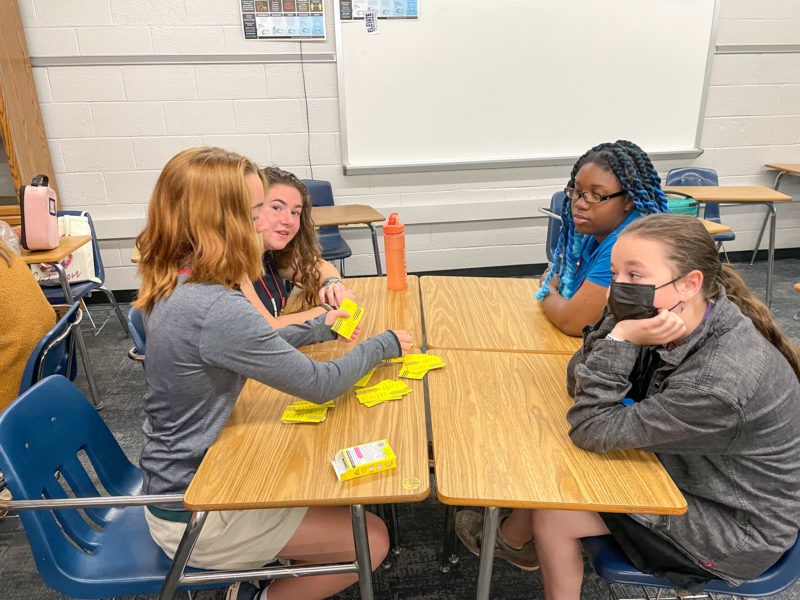


Eighth-Grade Day 2022
Game Playing, Shirt Signing
Another day of nothing, it would seem. Why the district makes us go these last days, we’ll never know. Well, we know — it’s the law. But it’s always a little strange. Still, the kids enjoy just getting to hang out with each other.
They play games.
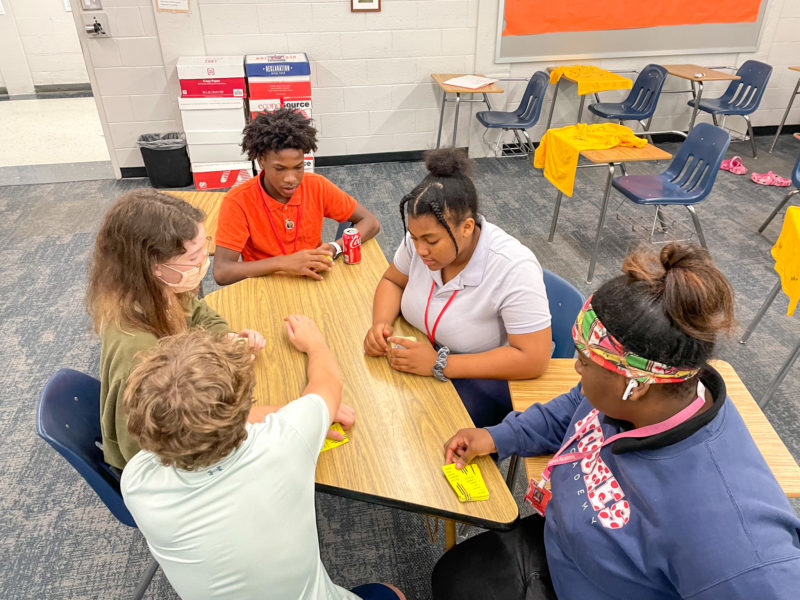
They sign shirts.
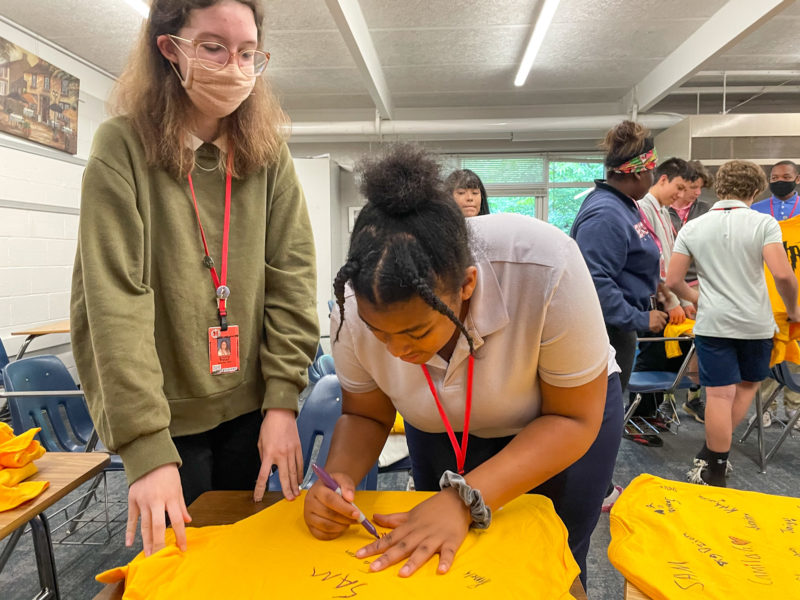
And they just hang out together.
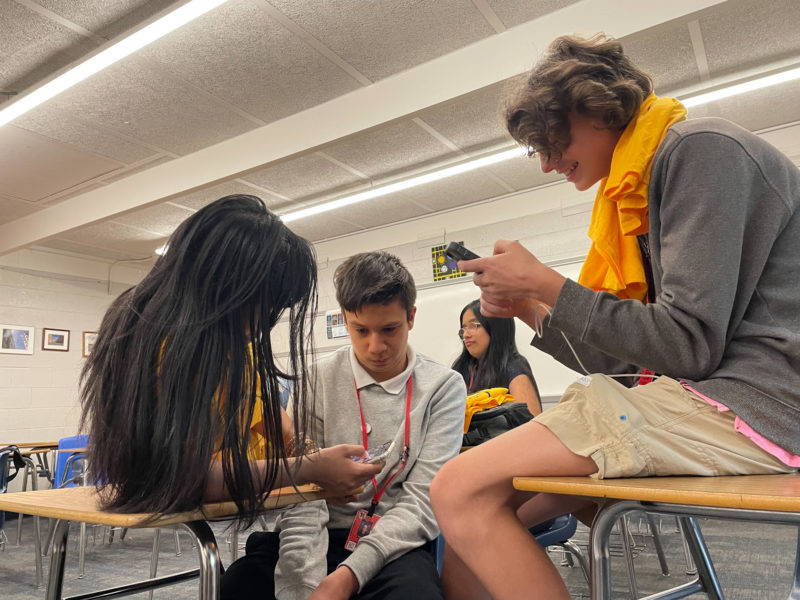
Class numbers are low; the kids who are there are always the calm, sweet ones. Why not just let them be and revel in their youth?
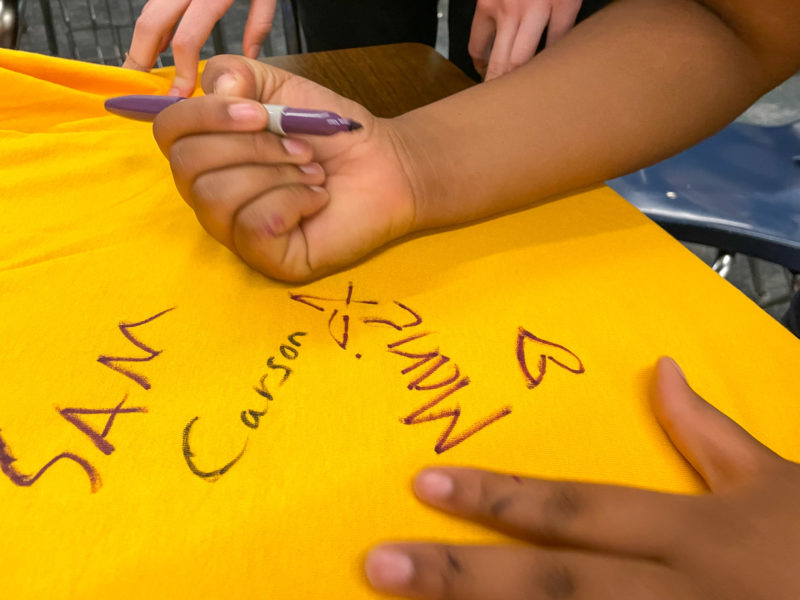
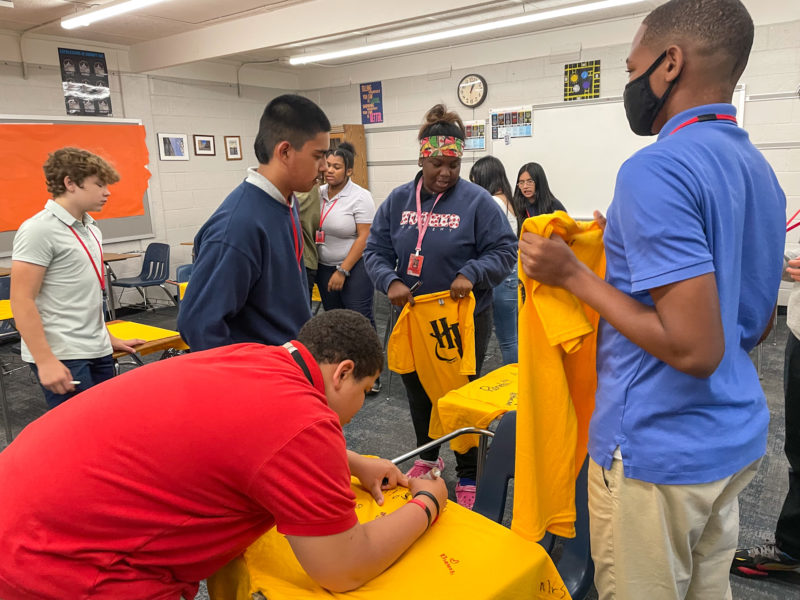
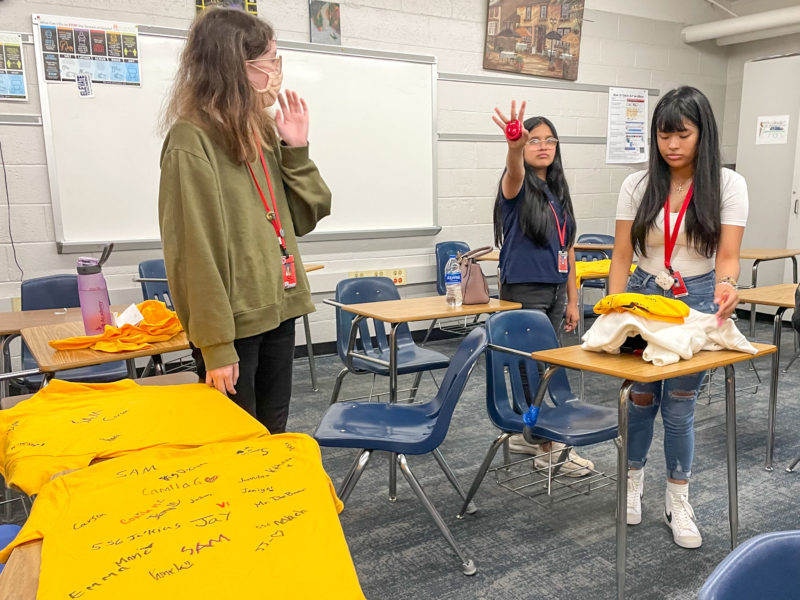
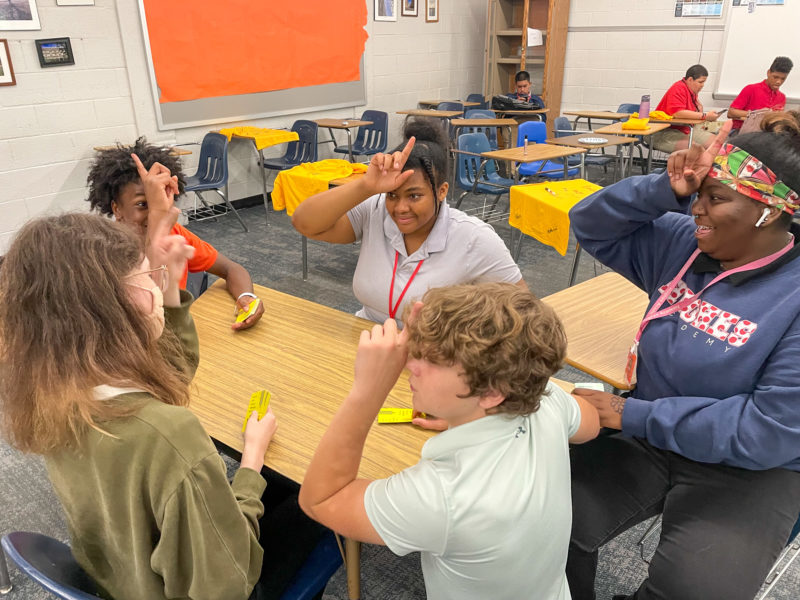
Nearing the End
The kids have only three more days of school: today was one of the two last full days because the final days are half days. Feed them lunch and get them out — that’s all that has to occur for the day to count, lunch. Everyone got their yearbooks today, so they spent most of the day signing each other’s yearbooks.
Naturally, several students asked me to sign their yearbooks. In the past, I made it easy on myself and kept with my dad-joke persona: I’d ask, “What do you want me to write?” and write whatever they said.
“I don’t know. Something nice.” Into the yearbook goes I don’t know. Something nice.
This year, I decided not to do that. It’s easy, and it’s fun to see the kids’ reactions, but this time, I thought about what I wanted to say to each kid who asked.
It was hard for some of them
Some of the things I wanted to say might not be the greatest thing to write in a yearbook. Not that they were negative, but so many kids sell themselves so short, so many kids who never really worked to their full potential because they didn’t even see their full potential. I sat and pondered for a bit, coming up with something positive and encouraging for everyone, but it wasn’t always easy or automatic.
Except for some kids.
We’re not supposed to have favorites, I know, and I really don’t feel like I do, but there are some kids that are just easier to work with, are just simpler to help reach their potential, are just more relaxed. More blessed some might say.
Warning
It’s the end of the school year, and that can only mean one thing for my English I students: letters to next year’s students.
“Make a little nervous,” say to them with a smile. “Impress them with your writing, and don’t lie — but scare them just a bit, too.”
Here are some of my favorite quotes from this year’s letters:
- Mr. Scott’s class is everything you’ve heard: awful, torturous, bewildering, etc, but it’s also a class that will form you into a better student, and you will find yourself writing things that you never believed you could. But trust me, reaching this did not come easy.
- I am sure that if you have earned your way into this class, you have heard the array of rumors regarding its difficulty. I for one recall questioning every former student to dig up any detail I could. I am here to tell you that the rumors about Mr. Scott and his dreadful class are not hearsay, but in fact very true. This class is very strenuous and involves lots of work.
- Most of your teachers are probably droning on about the student handbook, class rules, and retake policies, but not Mr. Scott. That’s your first clue about what kind of teacher he is. This class has most certainly been one of the most rigorous and challenging courses I have ever taken, but I have come out on the other side better for it.
- Mr. Scott will push you past your limits and tears will be shed during this Journey. From the beginning to the end of a very long year you will come out a completely different writer and person once he is through with you.
- Don’t let [Mr. Scott’s] glumpy old face get to you: he’s kind of a nice guy that’ll make English a living hell but at least it’s only for 180 days.
- Prepare yourselves for the most challenging class of your middle school years. This class will push you to your limit. There will be times where you will hate Mr. Scott, and you will learn he can be very annoying. Often he doesn’t answer your questions and just makes you figure them out on your own. But that will make you more independent as a writer and make you come up with your own ideas.
Nearing the End
Nearing the end of the year, and my honors students are still working hard. There are only eight days of school left, and they have two more writing assignments. One of them is a major assignment: the showcase letter to next year’s students.
“Don’t lie,” I tell them, “but scare them a little bit. And impress them.”

They’re also working on the end of Lord of the Flies. They have one short writing assignment for that: the last analytic writing assignment they’ll have for me.

They don’t know it yet, but it will be the only completion grade I give them for the whole year.
Eighth-Grade Day 2021
Yearbooks
Today, we handed out yearbooks, and as we had an extended homeroom period, I let all the kids sign each others’ yearbooks.

This was always a fun but stressful time when I was a kid: you want to ask people to sign your yearbook and you don’t — what are they going to write? You want to sign other people’s yearbooks and you don’t — what are you going to write?
Letters
At the end of every school year, I have students write letters to the rising eighth graders who will have me in English.
“Don’t lie, and don’t exaggerate too much,” I tell them, “but I want you to give them advice and scare them. Just a bit.”
I also use excerpts from these letters on my class website, Our English Class.

Some of the excerpts I selected:
- The Dreaded Mr. Scott is an extraordinary teacher and will become one of your favorite teachers this year but his work is no easy walk through the park. It will be difficult and really make you think. This class is not like any class you’ve ever had before. But at the end you will feel ready and prepared for what comes next, high school.
- Mr. Scott’s class is made for those who like and can put up with everyday disasters.
- Mr. Scott has impossibly hard standards, but he is there to help you meet those high expectations. This will probably be one of the most difficult classes that you will take throughout your education, but Mr. Scott is there to assist you along the way. He is one of the best teachers that you will ever have, and his class will thoroughly prepare you for high school.
- Mr. Scott is arguably one of the most difficult teachers you will have, partly because of his high expectations and teaching style. Mr. Scott will always expect the best from you, and will accept nothing less.
- This class that you have joined, can and most likely will be the toughest class you will ever take in middle school, but, it will teach you some of the most valuable lessons in writing and literature you will ever encounter.
To read these things makes me feel that I finally have reached the goal as a teacher I have always sought: to be demanding but fair; to be challenging but just.

Day 75: Awards
Today was the last day of the school year. Were it a normal year, we would have had three more half days. They’re useless for instruction: we’ve already completed grades, and what can you do with half days? Students clean out their lockers, sign each other’s yearbooks, have field day (or in eighth grade’s case, eighth-grade day, which differs from field day only insofar as the PTSA feeds the kids at the end of it all), and sundry end-of-the-year things. I use that time usually to pack up my room: I have lots of kids, empty boxes, and books — they make short work of what would take me a couple of hours. Were it a normal year — but it wasn’t, and three half-days of online instruction when a normal day of online instruction means thirty minutes of work per class — well, it just doesn’t make sense, and much to my surprise, the district realized that and basically thought like teachers for a change.
The Boy’s teachers had an awards day Google Meet — a very sweet thing for them to do. They recognized academic achievements like the A/B honor roll. When they began talking about it, I asked E if he thought he as on it.
“I don’t know.”
Indeed, I didn’t either. I knew he’d struggled mightily with a few things, and he was able to finish tests only because the teachers allowed him extra time. “I have to pay for it with less time on the playground, because that’s when I finish,” he once explained, “but that’s okay.”
But there was his name on the list, and there was a big smile on his face. High fives from everyone.
Is it a bad thing that I honestly had no idea whether or not he’d made the honor roll? I don’t think so: in second grade, grades appear for the first time. Everyone’s getting used to them. They’re not meaningless, but they’re not all that important, so I never really worried about his grades. I don’t quite think it was the same for K, but she never made a B (or 4 in the Polish system) even in her worst nightmares, so she put a little more weight on the grades. And to be fair, aiming high is always a good habit to develop. It’s not that I wanted him to settle. It’s just — well, it was second grade. I don’t remember a thing from second grade.
At the end of the program, they gave every single student a special award: most likely to — superlatives, in other words. E won “Most likely to win an episode of Survivor.” The other day during a Google Meet, E showed everyone his survival kit and told them a little about our adventures. That was what stuck in the teachers’ minds, and it was a cute award that just made E’s day.
What superlative would I give him? Sometimes, with his sensitive nature and keen sense of right and wrong, I think he’s most likely to have his heart broken in as many ways as one can imagine. He sometimes gets so frustrated with others’ unwillingness to follow basic rules. “That’s just not nice!” he concluded many stories about some tragedy that befell him in school. This is not to say that I assume he’s always an angel: many of our conversations involved me trying to help him see how he could have been nicer. Still, he’s a very by-the-book fellow, and it upsets him that others aren’t.
Maybe “Most likely to brighten someone’s day.” He can sure do that, but that requires a bit of familiarity. He’s not entirely comfortable approaching, say, a lonely kid on the playground that he doesn’t know but who might need someone to play with. The unknown — he’s not keen on that.
Maybe “Most likely to be an engineer.” He does love building things.
Or just “Most likely to make his family proud.”
As for the Girl, she got the good news that she definitely made it into geometry and English I Honors. That means she’ll be taking the course that I will teach exclusively next year. Were she a student at our school, that might cause problems: I wouldn’t want to stress of grading my own daughter.
For me, what’s more impressive is the geometry. I didn’t take geometry until tenth grade. She’s two years ahead of me.
She was worried about the possibility of not making one or both of those classes. Being a teacher and knowing how things often work behind the scenes, I knew it was unlikely. But I also knew that no “behind the scenes” would be necessary: she’s worked very hard this year, and she’s make sure that her grades are not just good grades but reflections of her actual understanding. She and K spent many an hour going over this or that algebra trick, and it all paid off.
So congratulations to both our kids!
Another End
Tomorrow I will say goodbye to 110 or so eighth-graders I have been teaching, comforting, battling, frustrating, encouraging, and 147 other -ings for the last 180 days. The tears will be flowing, the end of the world approaching, and there I’ll be, smiling at their innocence.
Graduation
As of tomorrow, L will officially be done with elementary school, but it was all over and done with today for all intents and purposes: tomorrow is a half-day, and today was graduation.

How in the world did six years go by so quickly? How did she jump from kindergarten — that first Meet the Teacher evening when she was enthralled with the reading pit in the library — to the end of her fifth-grade year when she looks more like a teenager than a kindergartener?
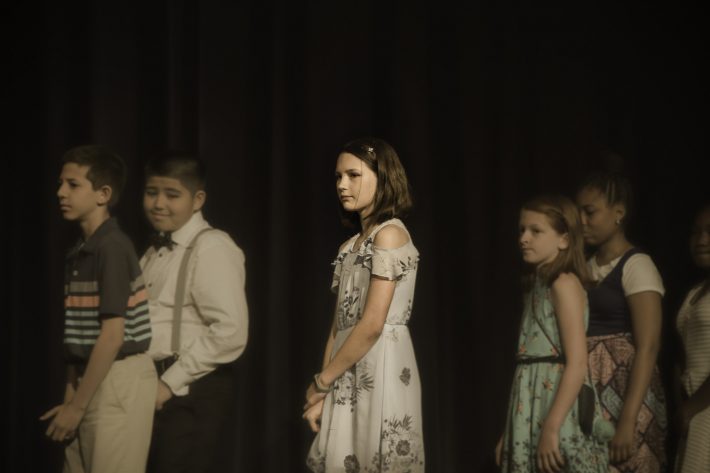
She’s no longer dependent on us for every little thing. She no longer seeks reassurance for every little thing. She no longer plays with toys or watches cartoons, except when she’s watching something the Boy has selected.
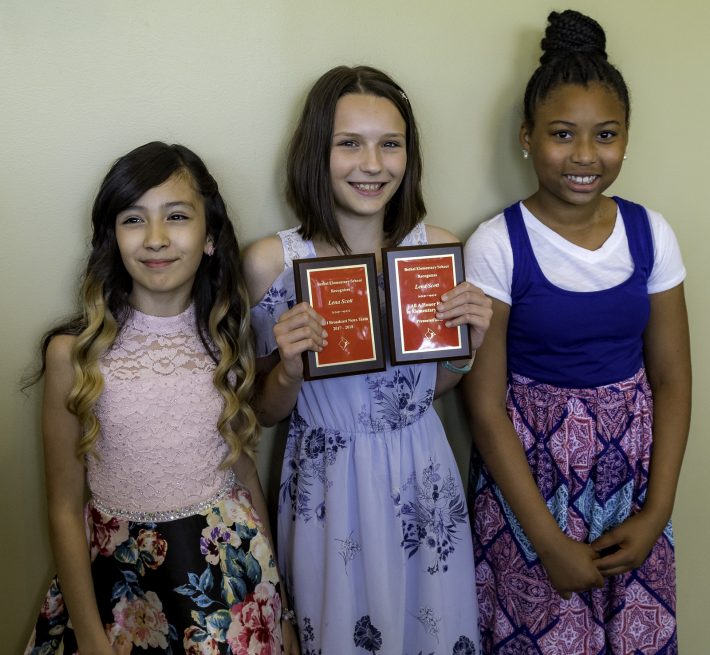
She has a sense of things that embarrass her when she once was, like most young children, virtually shameless. (And that sense of embarrassment is sometimes skewed in a distinctly teenage fashion — things that would never embarrass an adult, like taking a change of clothes in a small bag. “They won’t even notice,” I insisted. “They notice everything,” she insisted. I doubt it, but in that case, her perception is all that counted.)

It’s the end of a long chapter in her life, the end of elementary school, the end of childhood in many ways.
The End, 2017 Edition
Last year, one of the teachers on our team was a novice. Like all new teachers, she began the year with a little trepidation and a lot of excitement. When the year ended and students were walking off the eighth-grade hallway for the last time, she got a little teary.
“You going to get all sentimental this year,” I asked a few days ago.
“No,” she replied quickly.
It’s a common enough reaction: that first year, watching the kids leave and knowing you won’t see them again, you feel a little sinking feeling. They’re your kids, your first kids. The ones that taught you more about teaching than any class in college ever did. You fall in love with them in a way: they’re special, even the ones who drive you crazy. And when they leave, you’re not quite sure you’ll ever have kids that you feel so warmly about, kids quite like this. After a year or two, though, you see that the next batch of kids comes in and replaces the old batch. You can’t even recall many names from the last year without stopping to concentrate on the task. And you feel just the same way about this group as you did last year’s.
It’s then that you stop being quite so sentimental about it all–and all teachers, no matter how cynical or burned out they are now, were sentimental about teaching at one point–and realize, yes, you will have kids just like this next year.
There will be another Susan, whose loud and constant talking drives you nuts but who seems to have a potential about her that she herself doesn’t even fully realize.
You will have another Albert, who sometimes can’t foresee the consequences of his actions or the implications of his body language and so comes across sometimes as being quite a disrespectful child.
Another Amelia will sit among your students, seeming always to be enveloped in a happiness that spreads to all around her.
There will be another Chester, who has poor physical and social coordination and tries to make it up by showing off intellectually.
Another Davonte will dance through our door and then proceed to do nothing. Ever.
Every student you have this year will come back next year–and the next, and the next, and the next–with a different name, a different face, but the same basic personality. Or with a similar face and different name and radically different personality. Or any and all combinations of those three, hardly exhaustive possibilities.
For a teacher, it’s not the end. It never is, until you quit teaching.
Another End
“I am not going to cry,” said the girl with mascara running. She looked at me as if I’d suggested she might take to a life of crime for the fun of it upon finishing middle school.
“You never know,” I smiled.
It’s the ones who are most convinced they aren’t going to cry that end up crying the most. They end up putting to shame the few brave souls who admit days in advance, “When it’s time to leave that last day, I’m going to start bawling.”
I still find it sweet, this youthful reluctance to let go of the past. “You’re going to be laughing about it over social media in a few minutes,” all the teachers insisted, but that doesn’t provide solace. A young heart in a sense loves to ache. Or maybe I’m just speaking for my own youth.
Gifts for the Teacher
Measuring Success
They come in as strangers, and by now, their reactions and behavior are almost predictable. I have only a few more days with these students who’ve undergone so many transformation in less than a year, and then soon, they’ll be strangers again. One or two will send an occasional email, that’s certain; I’ll see one or two here or there every how and then. Some have younger siblings, so I’ll see them at awards nights in the future or in the car line if their sibling is the first dropped off. The rest, though, disappear for all intents and purposes, as I repeat the process next year, learning new names, new faces, new habits.
How do I know if it’s been a successful year, though? What metric allows me to make this determination? Is a letter from a student enough? Are test scores enough? (Our principal informed us that our End of Course exams for high school credit courses were the best “in a long time.” Is that a good metric?)
Almost May
It’s almost May, and we’re all breathing a sigh of relief. Students are ready to finish eighth grade, to finish middle school, to leave their academic home of three years and move on to high school. Teachers are ready for a new batch, new faces, new challenges, new gifts. Each day, we all head to school with a little lighter step: some students have already begun counting days (as have some teachers), and as the number dwindles, the pace quickens, as does the pulse and the talking and goofing. Soon, the energy waiting to escape the walls of the school will be almost impossible to contain, especially after next week, when the final round of state testing winds down and everyone finds themselves asking the same question: “Why are we still here if the be-all, end-all tests are complete?” Sure, a few district-mandated tests await students, but the SCPASS, the test that is the benchmark for school effectiveness, administration effectiveness, teacher effectiveness — the test, in other words — will soon be behind us.
My reaction over the years has changed. In the past, I was just trying to survive at this point in the year. Perhaps that was because of a lack of clear and clear-headed goals for students; maybe that was a result of my inexperience and ineffectiveness; possibly that was because I had some exceptionally challenging students. Or perhaps it was all that and more. At any rate, I find myself eager, after a short break, to begin again. A sufficient “short break” in this case would be about three weeks or so, but I’m fortunate that we get about four times that. More time with the kids; more time with coffee; more time for K to sleep in a bit — it’s a blessing for everyone, though K would unhesitatingly add “Especially for you.” And so it is.
